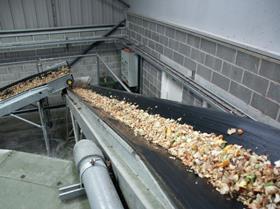
The government is giving £500,000 to fund food redistribution groups and charities in a bid to tackle waste.
The grant is administered by anti-waste organisation Wrap, and will provide essential resources to help eight charities expand their redistribution network.
The announcement coincides with a new report from Wrap showing a large rise in the amount of surplus food avoiding the bins through redistribution groups.
Environment Minister Thérèse Coffey said:“Congratulations to the eight groups which have received grants to aid their crucial work. Today’s announcement is a glowing example of the UK showing global leadership in measuring food waste and supporting food waste prevention projects.
“We’ve made good progress in tackling this problem, showing what can be achieved when the government and retailers work together. But there is more to do and this fund will help us waste less food and ensure more people in need get good quality meals.”
The cash will go towards numerous projects including the purchase of new 7.5 tonne lorry for Yorkshire group FareShare Yorkshire, as well as pay staff costs to help charity Feedback Global glean food for an extra 36 days per year.
According to Wrap, food redistribution from retailers, manufacturers and hospitality has increased by 50 per cent in the past two years, representing an extra 35 million meals a year saved.
The value of the food redistributed in 2017 was almost £130 million, with the increase from 2015 to 2017 worth over £40m.The manufacturing sector was the largest single source of redistributed food in 2017, followed by retail.
Retailers were also the biggest source of redistributed food to the charity sector.
Peter Maddox, director of Wrap said: “It’s great to see such a rapid rise in redistribution and the growing number of partnerships between the supply chain and charities. This stops good food going to waste, and helps feed people. But we know there’s much more to do. Our research shows food redistributed, from manufacturers and retailers, could increase further, by more than 200,000 tonnes.
“There’s potential too to source greater amounts of surplus food from other parts of the supply chain like primary production, and the hospitality and food service sector. Our Courtauld 2025 Redistribution Working Group is helping to forge new links and supports both businesses and redistribution organisations in ensuring surplus food feeds people, first. Businesses signatories have committed to doubling the amount they redistribute by 2020. Seeing these numbers, I am confident they will hit that target.”



